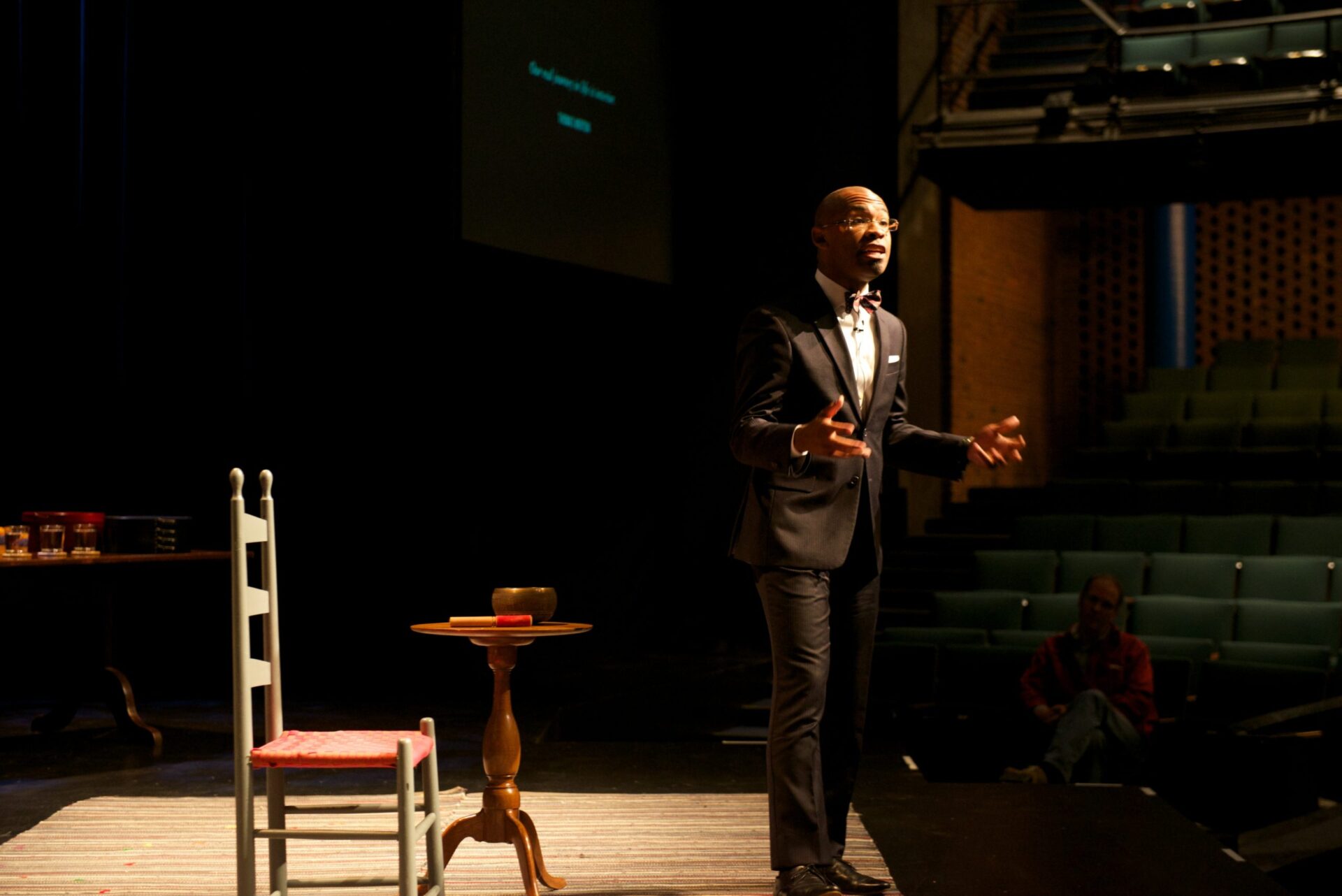by, Anna Rohleder
Wednesday morning’s panel on the theme of East and West brought together speakers whose paths led them through exotic places as well as mundane situations on their own sacred journeys.
Like Dante finding himself in a dark wood in the middle of his life’s journey, several of the speakers described feeling lost or “that it was a mess” while still in the midst of their search. Often only in hindsight did the outline of their trajectory come clear.
“Who said so?”
Reverend Robert Harvey’s path has been punctuated by a series of question marks into what we believe and why we believe it. Already as a child he demanded to know of his Sunday school teacher who wrote the Bible – an inquiry which took him all the way to Harvard Divinity School. As an adult, he puzzled over a gift of wisdom that his grandmother imparted to him on her deathbed: namely, that God never expected him to achieve perfection. What could that mean in the context of the societal expectations for an African-American male in our country? Of that person’s dreams for himself? By pursuing such questions with as much intellectual rigor as emotional honesty, Reverend Harvey has been able to offer his parishioners’ tough questions about God’s workings in their life back to them as reflections for themselves, rather than easy answers from him or any other authority.
Playing parts and becoming whole
Over the course of a lifetime, Pravrajika Vrajaprana came full circle: from “playing nun” as a little girl to literally playing a nun as an adult. Despite being attracted to the monastic life from an early age, she had a protracted series of negotiations with her calling before accepting it. She described knowing in her heart that a worldly life of money and romantic partnership would never quite be enough – and yet she still had to try it on for size. Only once she became a nun and had been living in the convent for seven years did she realize that she had brought the same “externalization” to her religious vocation as she had to the personas she had previously assumed in the world. In other words, there was more to her role than wearing the costumes and speaking the lines: she had to inhabit it from the inside out.
On turning, and re-turning
Bishop Marc Andrus has been able to discern the outlines of the cosmic spiral in his own sacred journey. Quoting William Coleridge, he observed that its workings are not linear: “like the motion of a serpent, at every step he pauses and half recedes, and from the retrogressive movement collects the force which again carries him onward.” He related how challenges around standing in the truth have continued to surface at different points in his life. But whether it’s a question of speaking out publicly for those without a voice to performing sacraments in a church, the spiral keeps turning by the same energy of compression and expansion, contemplation and action, receptivity and pouring forth. Progress on the spiral is also marked by a continual return to the starting point: origins, teachers, and a childlike sense of wonder.
Bringing East and West together
Although he did not describe it this way himself, Gerardo Abboud’s spiritual path took the form of the archetypal hero’s journey. He traveled far from his homeland of Argentina, over seas and high mountains, in search of the wisdom preserved by an ancient tradition. In his case, this was Tibetan Buddhism. Braving the difficulties of living in a developing country as well as the various forms of resistance that arose within himself, he stayed over a dozen years in India and Nepal in order to learn both the spiritual traditions and the Tibetan language. And his quest succeeded. He was able to bring the “elixir” of the Buddha’s teachings back to Argentina for the benefit of his own people, continuing to serve as a translator of language and traditions at many different levels.
